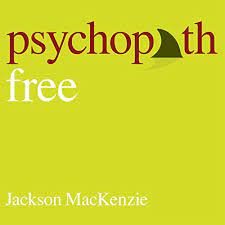CPTSD: From Surviving to Thriving
Who it may be good for: Anyone with or without complex trauma hoping to understand the science and understandings of CPTSD. This book includes almost anything if not everything you’d want to know about CPTSD. This is a good starter book for those beginning their complex trauma healing journey or learning how to support others on their journeys.
Difficulty: This does not need to be read straight through front to back and can be used more like an encyclopedia, it can be helpful for survivors and loved ones to use as a sort of guide to understand symptoms and trauma response in a simplified and understandable way.
Activation: This may activate some deep reflection if you’re a survivor and could be overwhelming if you try to read it all at once. I encourage clients to look through the glossary or index and read what feels helpful to learn about first rather than going cover to cover.
Be Not Afraid of Love by Mimi Zhu
Who it may be good for: Survivors looking to begin dating or begin exploring ideas of how domestic violence and assault affect dating experiences of survivors in addition to partners or loved ones trying to better understand their partner’s experience.
Difficulty: Combines a good balance of evidenced based work, personal experience, and anecdotes from other theorists.
Activation: Book includes some graphic depictions of assault and violence that some may find activating, please read with caution and give yourself breaks as needed.
Psychopath Free: Recovering From Emotionally Abusive Relationships with Narcissists, Sociopaths, and Other Toxic People
Who it may be good for: Survivors of domestic violence and abuse who are looking to better understand their experience and to gain guidance in healing. I would recommend this book to those working with a therapist and who have a basic understanding of what they’ve gone through in terms of the abuse cycle.
Difficulty: This book extensively details abuse tactics and explores the who/what/how/why of abuse. May take longer to complete than typical books, listening on audio is helpful.
Activation: Frequent breaks are recommended for this book if you’re a survivor as it is information heavy, due to description of manipulation and abuse tactics, some activation may occur.
The Neurodivergent Friendly Workbook of DBT Skills By Sonny Jane Wise
Who it may be good for: Clients of all background looking to build upon their self care and coping skills in addition to practitioners hoping to provide accessible resources to clients building their coping skill arsenal.
Difficulty and Activation: This book offers approachable and accessible information on DBT and coping skills while remaining trauma informed.



